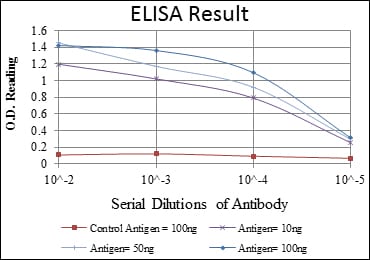
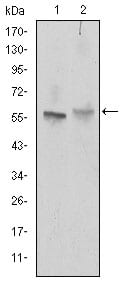
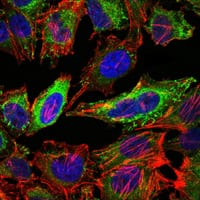
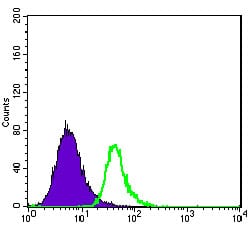
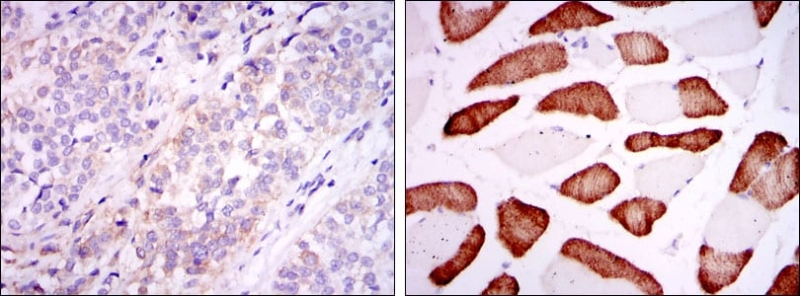
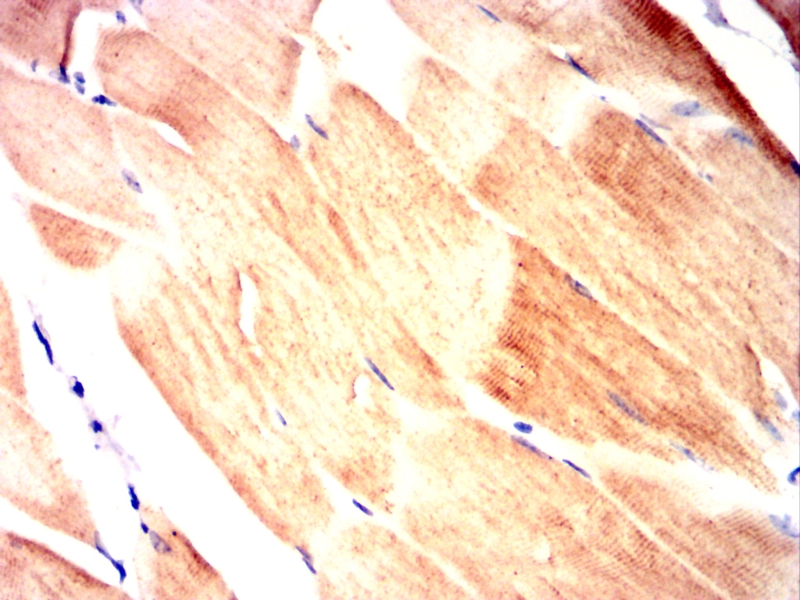
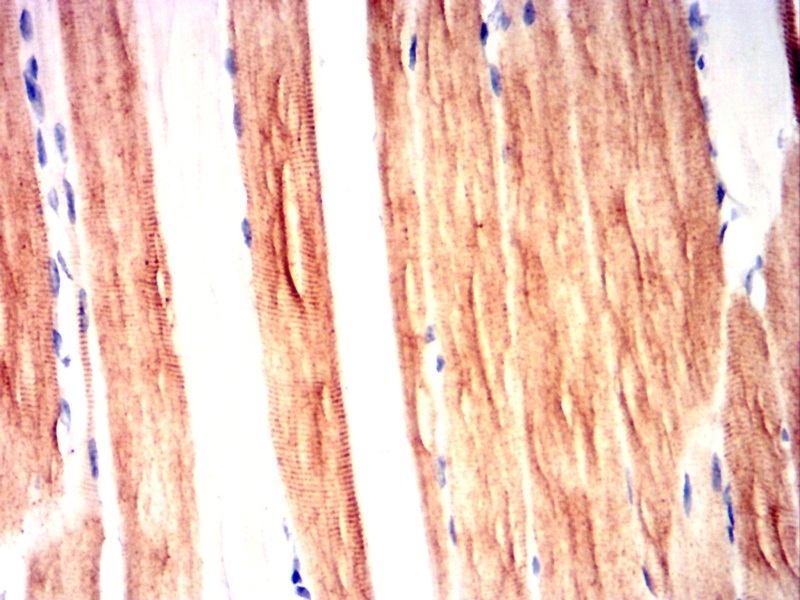
| WB | 1/500 - 1/2000 | Human,Mouse,Rat |
| IF | 咨询技术 | Human,Mouse,Rat |
| IHC | 1/100 - 1/500 | Human,Mouse,Rat |
| ICC | 1/50 - 1/500 | Human,Mouse,Rat |
| FCM | 1/200 - 1/400 | Human,Mouse,Rat |
| Elisa | 1/10000 | Human,Mouse,Rat |
| Aliases | MRX; MXR; ABCP; BCRP; BMDP; MXR1; ABC15; BCRP1; CD338; CDw338; EST157481; MGC102821 |
| Entrez GeneID | 9429 |
| clone | 3G8 |
| WB Predicted band size | 72kDa |
| Host/Isotype | Mouse IgG1 |
| Antibody Type | Primary antibody |
| Storage | Store at 4°C short term. Aliquot and store at -20°C long term. Avoid freeze/thaw cycles. |
| Species Reactivity | Human,Mouse,Rat,Rabbit,Monkey |
| Immunogen | Purified recombinant fragment of human ABCG2 expressed in E. Coli. |
| Formulation | Purified antibody in PBS with 0.05% sodium azide. |
+ +
以下是3-4条关于ABCG2抗体的参考文献及其摘要内容:
---
1. **文献名称**:*Multidrug resistance mediated by the breast cancer resistance protein (ABCG2)*
**作者**:Doyle, L.A., & Ross, D.D.
**摘要**:该研究首次克隆并表征了ABCG2(BCRP)基因,揭示了其作为ATP结合盒转运蛋白在肿瘤多药耐药中的作用,并开发了特异性抗体用于检测其在癌细胞中的过表达。
---
2. **文献名称**:*Subcellular localization and distribution of the breast cancer resistance protein transporter in normal human tissues*
**作者**:Maliepaard, M., et al.
**摘要**:通过免疫组化分析,研究利用ABCG2特异性抗体揭示了该蛋白在胎盘、肝脏、小肠等正常组织中的分布特征,为理解其生理功能及药物外排机制提供依据。
---
3. **文献名称**:*Comparison of anti-ABCG2 monoclonal antibodies for specificity and sensitivity in immunohistochemistry*
**作者**:Mao, Q., & Minderman, H.
**摘要**:研究系统评估了多种商业ABCG2抗体的特异性和灵敏度,发现部分抗体存在交叉反应性,强调选择高特异性抗体对临床样本分析的重要性。
---
4. **文献名称**:*Breast cancer resistance protein (BCRP/ABCG2): its role in multidrug resistance and regulation of gene expression*
**作者**:Nakanishi, T., & Ross, D.D.
**摘要**:综述总结了ABCG2在肿瘤耐药中的分子机制,并讨论了抗体在检测其表达水平及功能研究中的应用,强调其在个体化治疗中的潜在价值。
---
以上文献涵盖了ABCG2的功能研究、抗体开发及临床应用,可作为相关领域的基础参考。
ABCG2 (ATP-binding cassette subfamily G member 2), also known as breast cancer resistance protein (BCRP), is a transmembrane transporter protein belonging to the ATP-binding cassette (ABC) superfamily. It plays a critical role in cellular detoxification by effluxing a wide range of endogenous and exogenous substrates, including chemotherapeutic agents, toxins, and metabolic byproducts. ABCG2 is expressed in various tissues, such as the placenta, blood-brain barrier, liver, and intestines, where it contributes to tissue protection and drug pharmacokinetics. Its overexpression in cancer cells is linked to multidrug resistance (MDR), a major challenge in oncology, as it reduces intracellular drug accumulation and therapeutic efficacy.
ABCG2 antibodies are essential tools for studying the protein's expression, localization, and functional roles. These antibodies enable detection via techniques like Western blotting, immunohistochemistry, and flow cytometry, aiding in research on drug resistance mechanisms, stem cell biology (e.g., side population identification), and barrier tissue functions. Monoclonal and polyclonal antibodies targeting specific epitopes of ABCG2 are validated for specificity and sensitivity in diverse experimental models. Recent advances in therapeutic strategies targeting ABCG2. such as inhibitors to overcome MDR or nanoparticle-based drug delivery systems, further underscore the importance of reliable antibodies in both basic research and clinical applications.
×